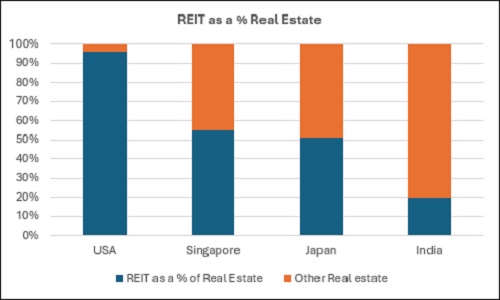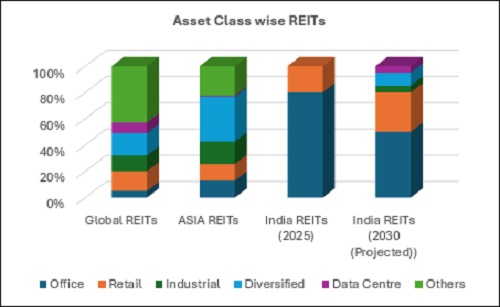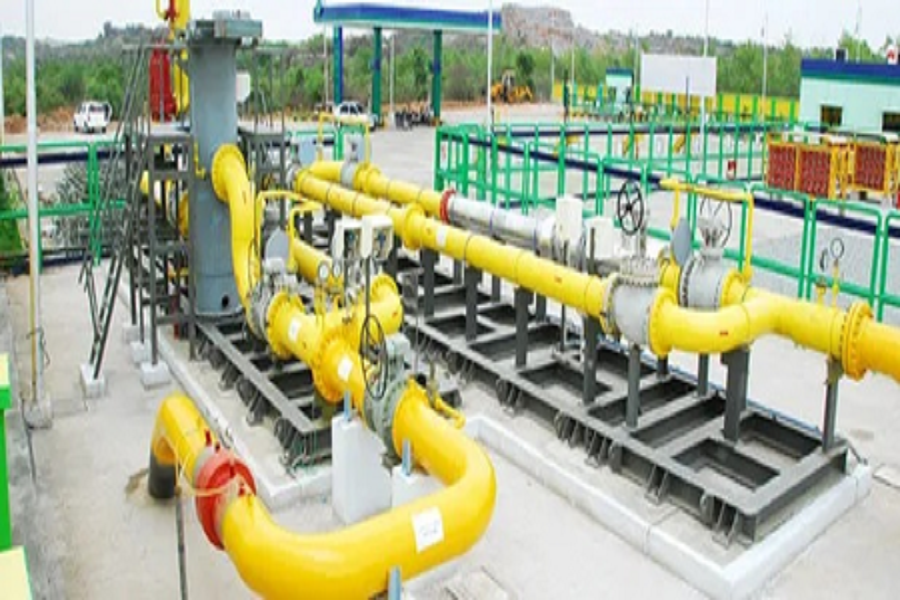Indian REITs Deliver 6–7% Yields, Surpassing Global Benchmarks – ANAROCK-CREDAI

Since the first listing in 2019, the Indian REIT market has expanded steadily, reaching a market capitalization of around USD 18 Bn as of August 2025. With three more REITs expected over the next four years, India is projected to cross USD 25 billion in market capitalization. The report ‘Indian REITS: A Gateway to Institutional Real Estate’ by official knowledge partner ANAROCK Capital and CREDAI, unveiled today at the CREDAI NATCON in Singapore, examines the Indian REIT landscape in fine detail.
Shobhit Agarwal, CEO – ANAROCK Capital, says, “Indian REITs are late to the party, but now lead the dance. Despite its late entry compared to global peers, India has strong fundamentals. The distribution yields, currently averaging at 6-7%, are well above many mature markets such as the US and Singapore among others. Average distribution yields of Indian REITs are competitive with fixed-income instruments but have the added potential for capital appreciation. We take a deep dive into this phenomenon in the report.”
Mr. Shekhar Patel, President, CREDAI, says, “Over 60% of India’s REIT market value today rests with very small set of players, with a strong base in Grade A offices linked to IT and BFSI. The future, however, holds far wider promise. As India’s cities grow, infrastructure strengthens, and the economy diversifies, REITs will expand into retail, logistics, housing, and new-age assets. This transformation will unlock unprecedented opportunities for investors and firmly place India among the most dynamic REIT markets in the world.”
Share of REITs in the Real Estate Market
Despite REIT guidelines being introduced in 2014 and the first listing only in 2019, Indian REIT market accounts for just 20% of institutional real estate, far below the USA (96%) or even Asian peers like Singapore (55%) and Japan (51%). This limited penetration is largely because Indian REITs are so far concentrated in Grade A commercial office assets, which offer scale, transparency, and stable cash flows. As the market matures, diversification is expected through data centres and logistics REITs, supported by rising digital demand and e-commerce growth, while retail mall REITs may follow with ongoing consolidation.
Residential REITs remain a longer-term prospect, constrained by low rental yields and fragmented ownership, indicating that Indian REIT sector is still in the early stages of evolution. With more asset classes becoming REITable, India’s penetration could potentially rise to 25–30% of institutional real estate by 2030, positioning it as one of the fastest-growing REIT markets globally.

Further, the report highlights that globally, industrial REITs are gaining significant momentum on the back of sustained e-commerce penetration, supply chain re-optimization, and last-mile logistics demand, ensuring long-term rental growth and capital appreciation. Data centre REITs, valued at ~USD 250 billion by 2024 and projected to double within seven years, are expanding rapidly due to surging cloud adoption, AI-driven workloads, and hyperscale infrastructure needs. India is also well-positioned to mirror this trend, as reflected in a 60% YoY surge in industrial and logistics leasing in H1 2025, a 30% YoY rise in warehousing absorption, and a threefold increase in institutional investment to USD 2.5 billion in 2024.

The regulatory environment has also played a pivotal role in shaping investor confidence in Indian REITs. Since SEBI’s introduction of REIT regulations in 2014, progressive reforms - including the reduction of lot sizes, simplified capital gains, and dividend tax exemptions introduced in 2025 - have strengthened transparency, retail participation, and long-term stability.
That said, in developed markets like the USA and Singapore, dividends from REITs are generally taxed at lower rates, making them more attractive for retail investors compared to India.
All in all, Indian REIT market, though relatively young, is on a strong growth trajectory and is poised to become a mainstream investment avenue for both domestic and global investors. REITs in India are supported by deep office market demand, rising institutional-grade stock, and a proactive regulatory environment. Attractive yields of 6–7%, coupled with rental escalations and capital appreciation opportunities, make Indian REITs highly competitive compared to global peers.
As the sector diversifies into logistics, warehousing, retail, and data centres, India’s favourable demographics, rapid urbanization, and sustained GDP growth will further reinforce its position as one of the most lucrative markets for institutional capital. The combination of regulatory confidence, market depth, and growth potential ensures that REITs will play a defining role in shaping the future of Indian real estate.
Above views are of the author and not of the website kindly read disclaimer
























